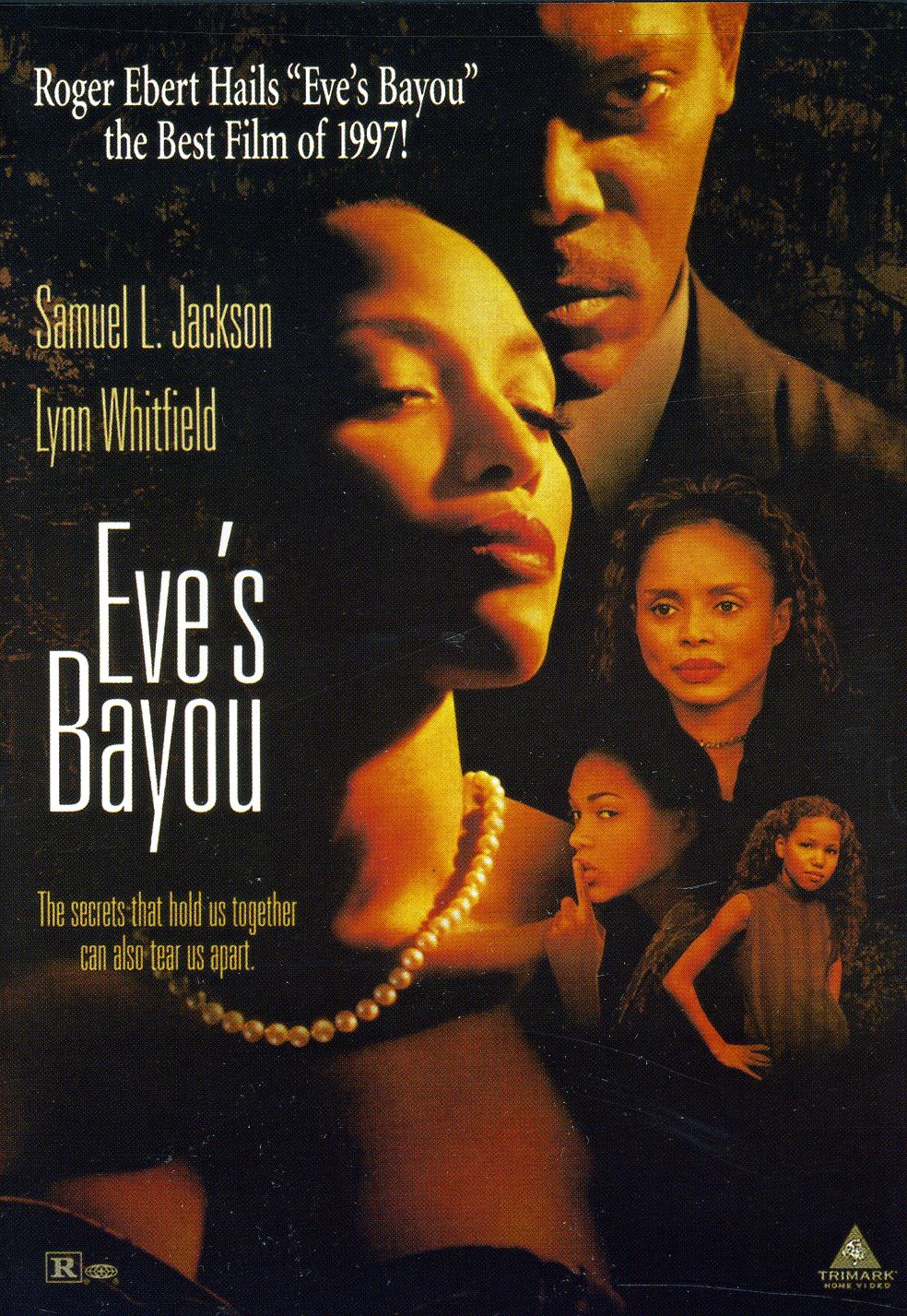Written by Robin Hitchcock.
 |
| Eve’s Bayou dvd cover |
Eve’s Bayou, Kasi Lemmons’s 1997 debut as a screenwriter and director, should be seen by every movie lover, every filmmaker, every storyteller. It’s a nearly perfect narrative feat, but it only generated minor waves among film critics upon its release (although Roger Ebert did name it his Best Film of 1997), and failed to garner mainstream awards nominations (it did better at the Independent Spirit Awards and NAACP Image Awards). In the intervening sixteen years I would have expected it to build up a huge following and status as a cult classic, but it is, at best, remembered as “a contemporary classic in black cinema.”
To be fair, one of the most remarkable things about Eve’s Bayou is that it features an all-star cast of black actors (including Lynn Whitfield, Debbi Morgan, Dihann Carroll, and Samuel L. Jackson), all playing characters informed by race, but not defined by it. Race and culture give Eve’s Bayou some of it’s richness and depth, but are not the main driving forces of the story. It’s sadly very rare to see a film about black people that isn’t entirely about their blackness.
Eve’s Bayou is also unusual in that it focuses on women, and is told through women’s point of view. Mainly, that of ten-year-old Eve (Jurnee Smollett), whose adult self provides the bookending narration: “Memory is a selection of images, some elusive, others printed indelibly on the brain.“
The power of memory and the unreliability of perception are the main themes of Eve’s Bayou, but these themes are infused into the story without reducing its clarity or straightforwardness. A bit of magical realism is used (in one stunner of a scene, Eve’s many-times-widowed aunt recounts how one of her husbands was murdered, and both women see the events play out behind them in a mirror’s reflection as the story is told), but these devices help ground the more fantastical elements of this story (including psychic visions and voodoo).
I was reminded of last year’s Beasts of the Southern Wild while rewatching Eve’s Bayou this week, as both take place in Louisiana, contain elements of the fantastical, and feature a powerfully-realized young black girl as their main character. Beasts of the Southern Wild didn’t work for me because I felt it sacrificed storytelling at the expense of its lyricism, which may be why the brilliant plotting of Eve’s Bayou stood out for me upon this rewatch. Eve’s Bayou leads you down a path where you think you know what is going to happen, but turns those expectations on their head in a ways that are both heartbreaking and moving.
 |
| Jurnee Smollett as Eve in Eve’s Bayou |
I also think Eve’s Bayou is remarkably truthful and recognizable in its depiction of childhood, with all its joys, confusions, frustrations, and fears. There are many charming moments where Eve and her older sister Cecily (Meagan Good) and younger brother Poe (Jake Smollett) torment each other in ways very relatable to anyone who grew up with siblings or other children. But this film’s depiction of the challenges of childhood go deeper: we see Eve and her siblings wanting desperately to be included with and seen as equal to the adults (sometimes in very shocking ways), but also their anxiety and discomfort with growing older and leaving childhood behind.
All in all, Eve’s Bayou is a remarkable film that should have more fame and esteem than it does. If you haven’t seen it yet, it deserves the top spot on your to-see list.

Thank you for writing this beautiful post about a fascinating movie.